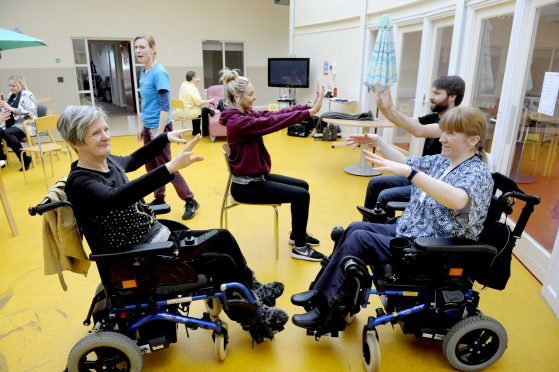People in Scotland with neurological conditions are being denied the treatment and support they need, according to a health and social care charity.
Sue Ryder, which provides support for people suffering from illnesses like multiple sclerosis and Parkinson’s, has claimed
younger adults are being placed in old people’s homes.
Without the right specialist care, people with such illnesses are not able to live life as fully they could be, suffering needlessly along the way.
Figures obtained in a Freedom of Information request to every local authority and health board in Scotland showed that only a third of local authorities across the country know how many have been put into inappropriate care.
But today the charity is warning that the number of people in old peoples’ homes could actually be higher – as their research revealed no local authority or health board knew of the numbers affected in their area
Pamela Mackenzie, assistant director for Sue Ryder in Scotland, has urged the Scottish Government to address the issue.
She said: “It is clear from our research that the needs of people with neurological conditions have largely been overlooked in recent years.
“Now the true state of neurological health and social care services in Scotland has been revealed, we urge the Scottish
Government to take immediate action to address these inequalities so people with neurological conditions get the chance of a
better quality of life.
“Neurological conditions can strike anyone, at any time, turning their life and the lives of their loved ones upside down.
“Those affected can endure some of most painful and disabling symptoms of all health problems and this impacts on every aspect of their life, including their relationships, their children and their job.
“On top of this, they face an uphill struggle to get the specialist care they need whether in their own home or in residential care.”
